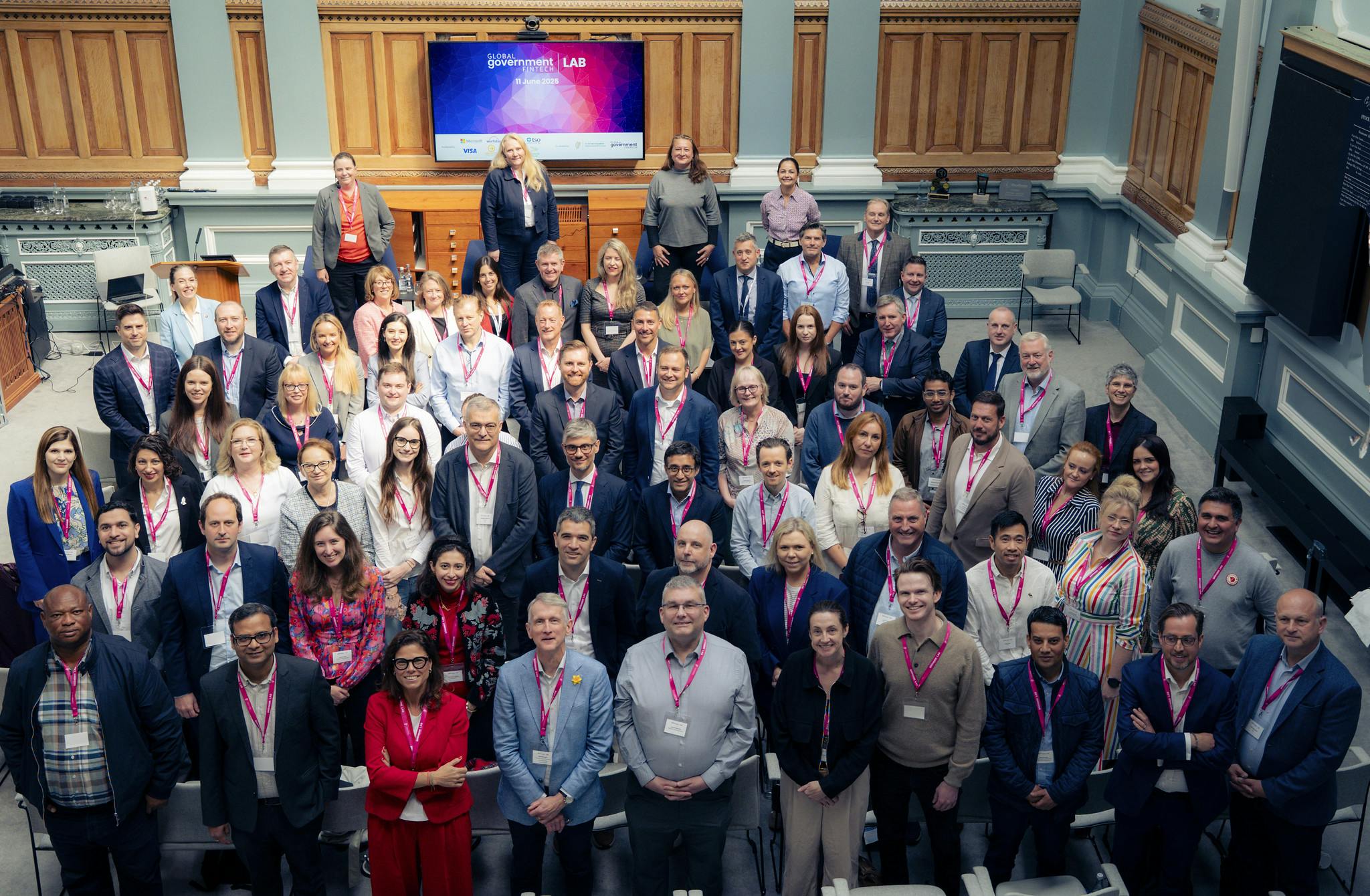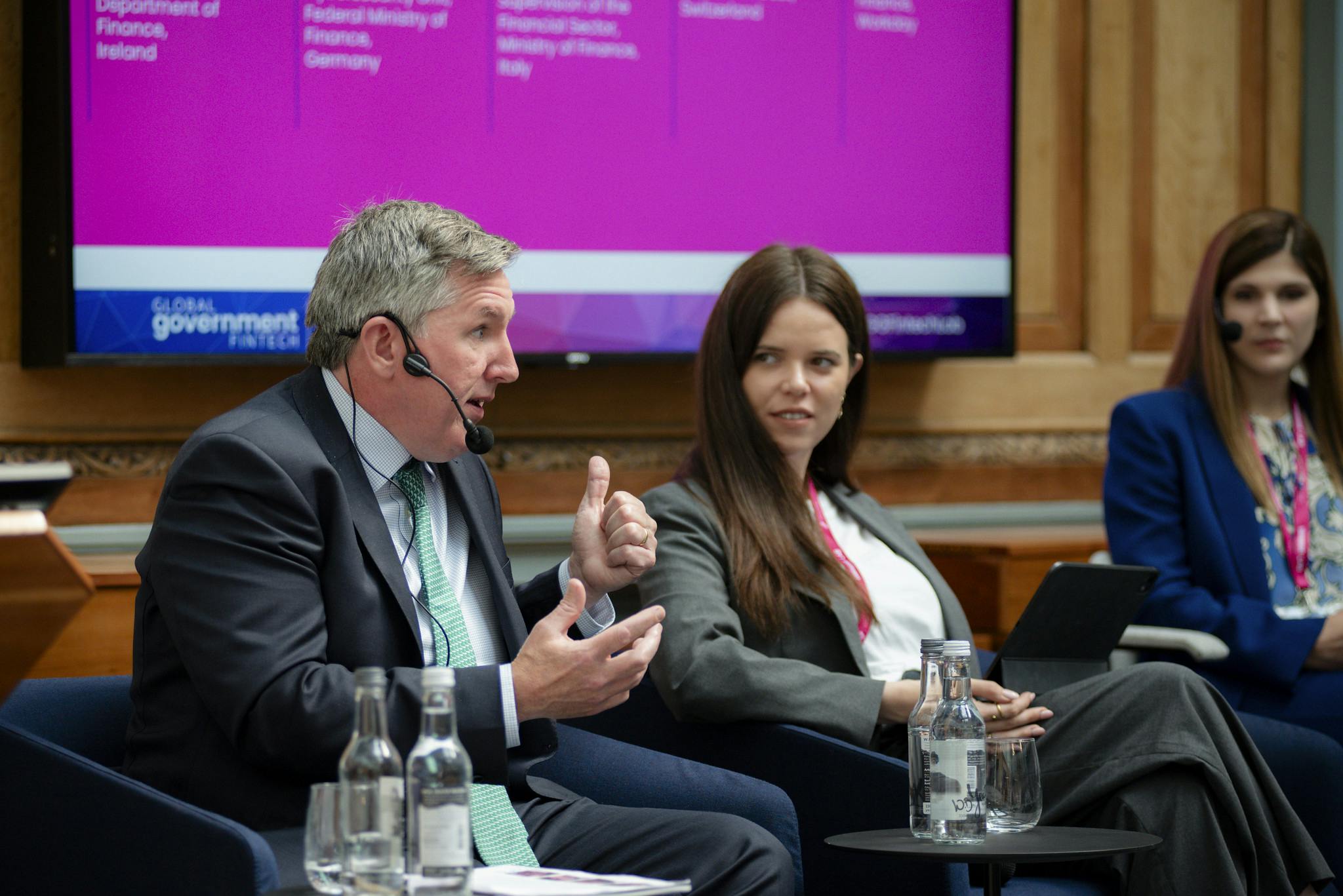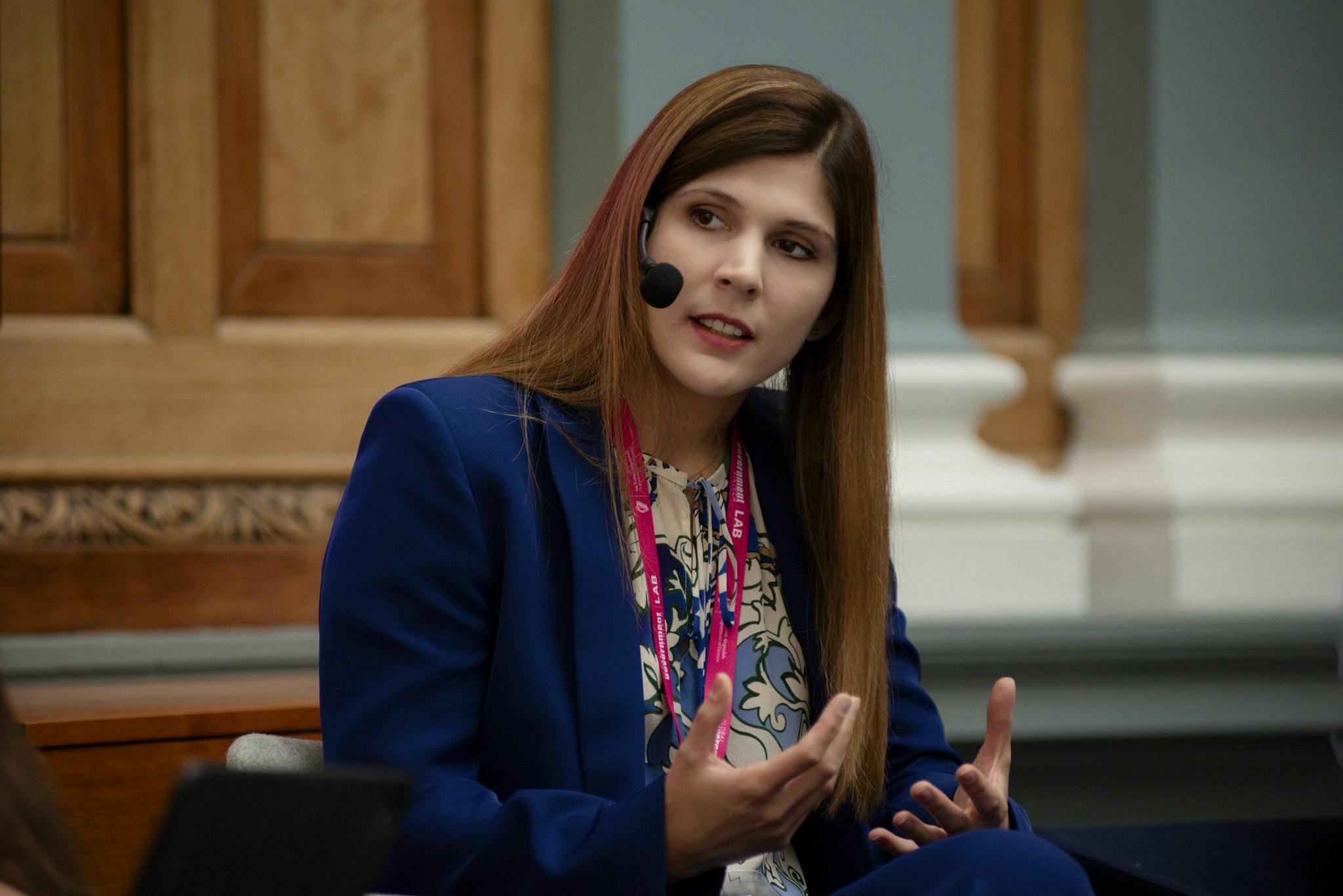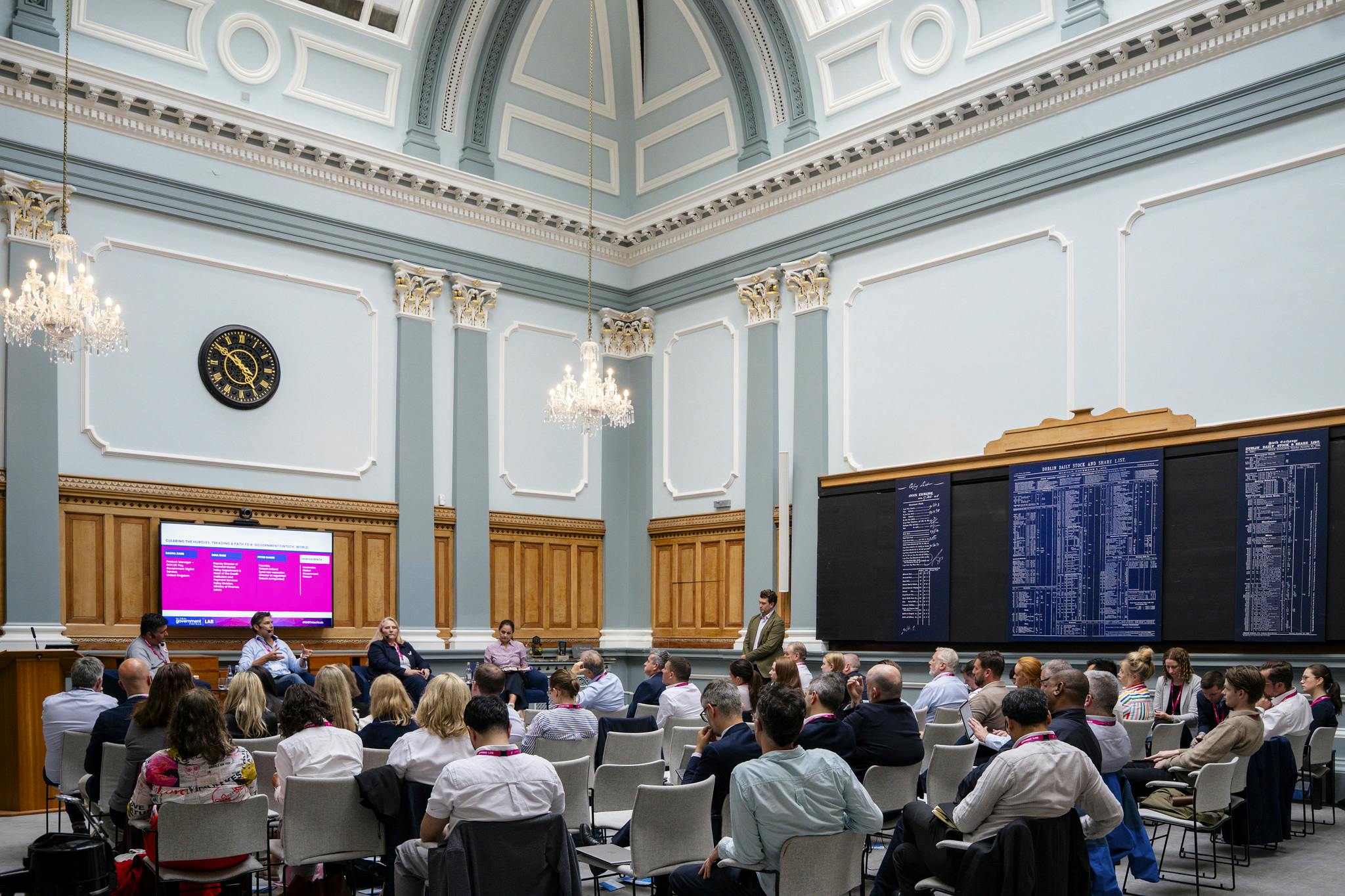The Global Government Fintech Lab (GGFintechLab) is a unique international conference that brings together public authorities working at the intersection of government and financial innovation: 90+ attendees, 25 speakers, 20+ countries. Held annually, it provides a dedicated space for civil servants and policymakers to share best practices and experiences, compare strategies and discuss how public institutions can better foster financial innovation and engage with fintech to serve their citizens. While the fintech space is full of private sector and regulatory conferences, the GGFintechLab stands out as one of the few platforms focused solely on government peers.
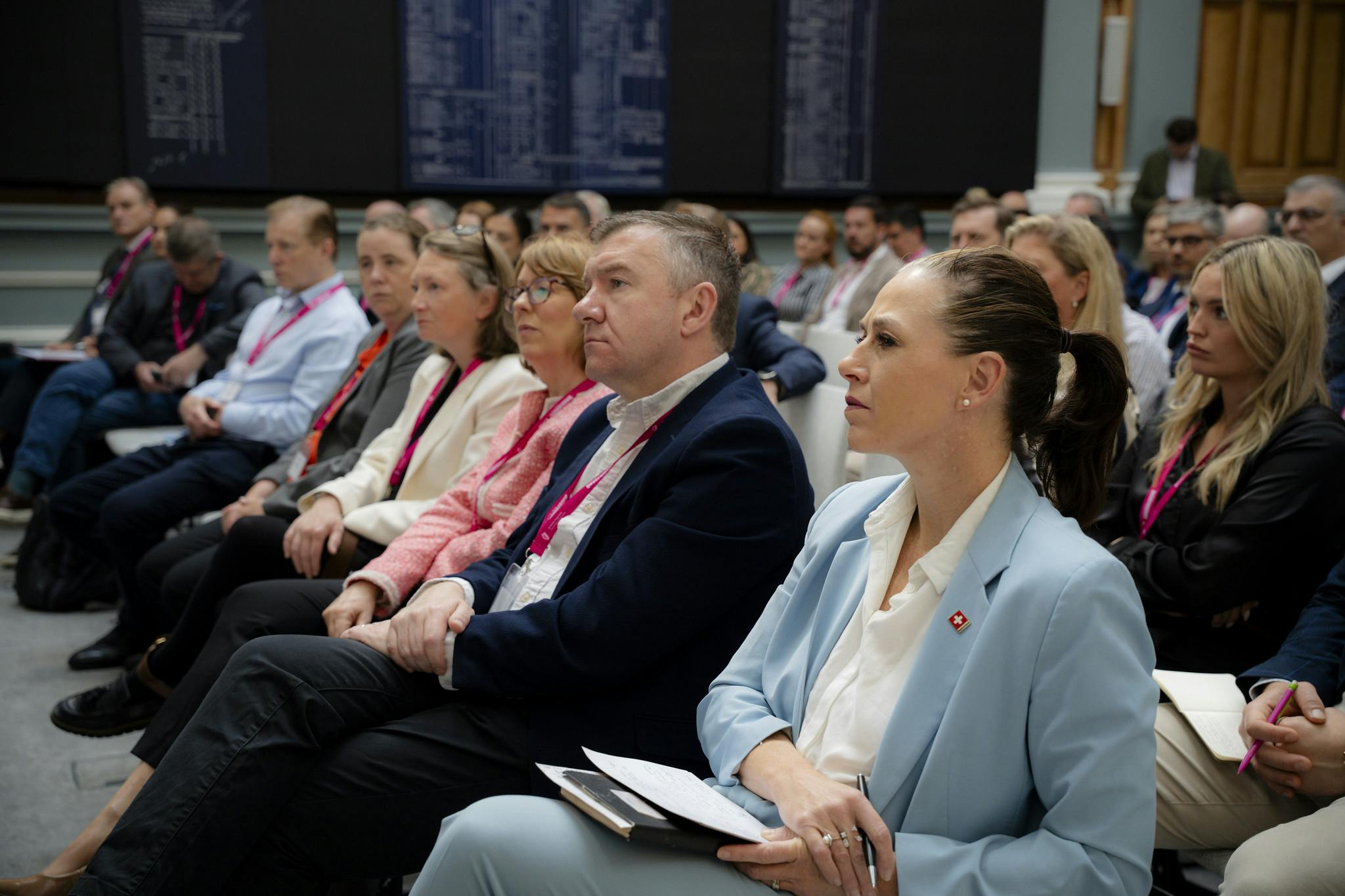
Eva Selamlar, Head of FIND
Source:GGFintechLab 2025
The Swiss Financial Innovation Desk (FIND), as a central public hub strengthening the Swiss financial centre, was invited for this fourth edition. Eva Selamlar-Leuthold, head of FIND, took part in the opening panel alongside Brian Corr (Head of the International Financial Services Unit, Irish Department of Finance), Laura Körber (Policy Officer, Digital Finance Unit, German Federal Ministry of Finance) and Elda Nogarotto (Policy Officer, Directorate for the Regulation and Supervision of the Financial Sector, Italian Ministry of Economy and Finance). The session explored how governments are engaging with fintech and whether these two worlds are, as the panel’s title provocatively asked, “Governments and fintech: comfortable bedfellows?”
What made this conference particularly valuable was the recognition that, across very different national contexts, the core challenges and objectives are strikingly similar: how to make public services more efficient and citizen-centric, how to integrate emerging technologies into government’s own processes and how to navigate the balance between fostering innovation and ensuring stability in a fast-paced changing environment.
In some countries, public sector fintech efforts are led by ministries of finance; in others, by central banks or dedicated agencies or ministries for digitalization. Structures vary, but the goals – more agile, digital-ready and resilient public finance systems – are shared. It was noted that innovation hubs and regulatory sandboxes are already an established international best practice. This is precisely why peer-to-peer exchange is so essential. There is no need to reinvent the wheel in every country when we can learn from each other, adapt smart ideas and implement them locally.
In Switzerland, this is where FIND comes in. Created in 2023 within the Federal Department of Finance (EFD) and administratively borne by the State Secretariat for International Finance (SIF), FIND serves as a lean and transversal hub designed to promote financial innovation in Switzerland. Eva Selamlar described the pilot initiative with the metaphor of a “concierge” helping to navigate a rich but fragmented landscape of federal, cantonal, academic and industry stakeholders.
“By being there, by listening, by talking to our customers – the ecosystem – we know what’s going well and what’s not. Only when you make these things visible can real collaboration happen,” she said.
Swiss examples presented included the Swiss National Bank’s work on tokenised finance and wholesale central bank digital currency, and a recent partnership between the Cardano Foundation and Switzerland for UNHCR on an innovative ETP supporting refugees through crypto staking.
However, Eva Selamlar also noted that although Switzerland continues to top global innovation rankings, the financial sector’s contribution to Swiss GDP has steadily declined over the past years and Zurich, Zug and Geneva have lost grounds in the Global Financial Centres Index . Also, according to a recent academic study the number of fintech companies in Switzerland has stagnated over the past year while e.g. neighboring Liechtenstein accounts for an impressive 27% growth (see our article about Financial Innovation in Switzerland). FIND hence conducted a market survey to analyze if the fintech stagnation reflects a maturing ecosystem or if there is a potential need for improving existing framework conditions. Because innovation is a constant process – and the same holds true for having optimal framework conditions. The results will be made available in due course once the survey’s evaluation is completed.
Irrespective of those developments, in highly fragmented Switzerland there is an identified need to further foster innovation through better coordination and visibility. Because innovation happens not just in fintech startups, but just as well with incumbent financial or big tech players and in top-notch academic research institutions. This is why FIND has launched the FIND Map to make the key sources of financial innovation visible. With the first cluster “FIND your academia”, the ecosystem may locate and get in touch with the most innovative minds in Switzerland that conduct cutting-edge R&D on artificial intelligence, blockchain, quantum computing, quantum-safe or digital trust .
The other panelists also offered valuable insights into how their governments are addressing financial innovation. Brian Corr highlighted the need for stronger policy levers in Ireland for Finance strategy. Laura Körber presented Germany’s large-scale public investment initiatives and use of AI within the ministry. Elda Nogarotto shared Italy’s experience with its regulatory sandbox and the launch of FinTech Factory MEF, a public initiative supporting procurement of fintech solutions by state authorities. Despite differences in institutional setups, the session made clear that all countries are moving toward the same objective: future-proofing their financial systems through innovation.
One of the main takeaways: for complex issues like AI or DLT, regulatory speed isn’t always the best strategy. To foster financial innovation, a nuanced regulation – or even targeted de-regulation – is key. According to Eva Selamlar, new technologies do not always need new regulation, to the contrary, principle-based regulation is often more than sufficient to deal with new questions. In her opinion, sufficient time should be spent to decide on the most innovation-boosting regulatory approach while at the same time adequately addressing state interests such as financial stability or investor protection. In that regard, Eva Selamlar noted Switzerland’s differentiated approach – fast and decisive on DLT regulation, more cautious and consultative on AI – as an example of aligning pace with balance.
FIND’s premiere debut at the GGFintechLab confirmed the importance of global collaboration. As highlighted throughout the day – and in the full conference summary article – innovation moves across borders. Governments must keep talking, learning and adapting together.
